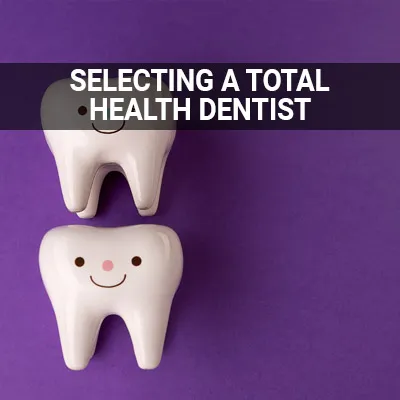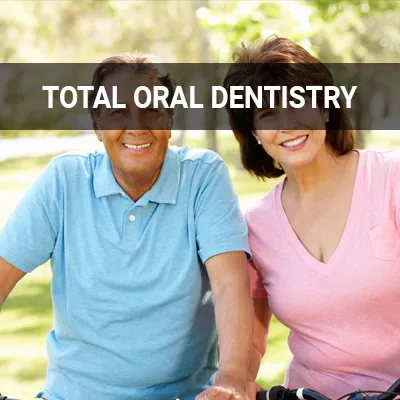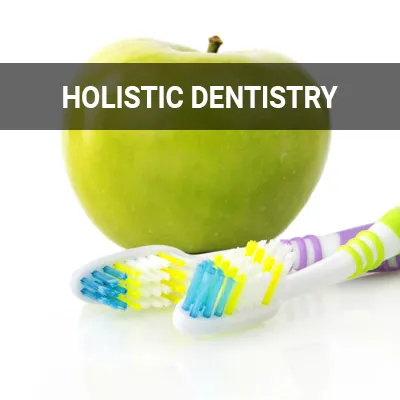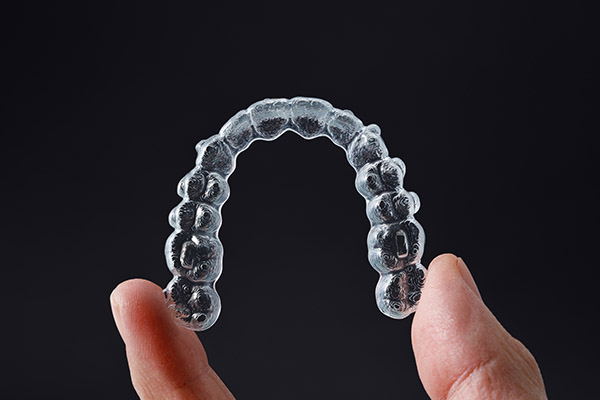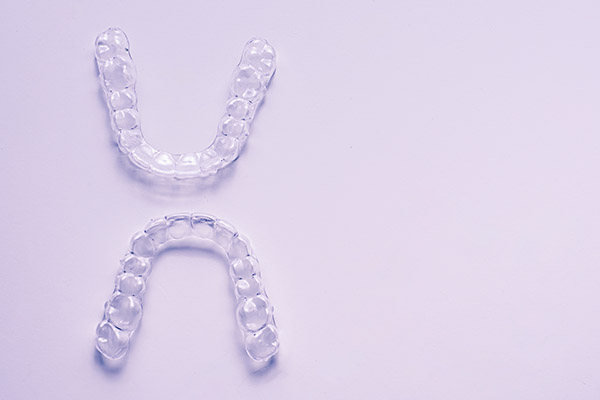Healthy Mouth Baseline San Antonio, TX
Unlike traditional dentists, complete health dentists work collaboratively with their patients to get them back to a healthy mouth baseline. We assess the patient's unique needs and motivators while considering their overall health. Patients and doctors of preventative dentistry are often able to spot serious health problems before they have the chance to get worse.
Preventative dentistry is available at Culebra Family Dentistry in San Antonio and the surrounding area. Our team will help you meet your complete health goals. Call us today at (210) 787-1554 to schedule an appointment or to learn more about our services.
What Happens During an Annual Wellness Visit
While traditional dentists tend to treat isolated conditions, complete health dentists aim to treat patients in their entirety. They take a more comprehensive view of the patient, their pre-existing conditions, individual needs, unique risk factors, and more. As such, an annual visit to a complete health dentist is not just an "annual checkup." Rather, it is an annual wellness visit in which they take the patient's total condition into account.
A patient's mouth is a reflection of their overall health. Ideally, it should be free of bleeding gums, cavities, swelling, or any other irregularities. At the beginning of an annual wellness visit, a complete health dentist will show the patient a graph of the healthy mouth baseline. The hygienist will then delve deeper into their concerns before checking their vitals, conducting an oral cancer screening, and asking about sleep and lifestyle habits in preparation for the doctor.
“While traditional dentists tend to treat isolated conditions, complete health dentists aim to treat patients in their entirety.”
Doctor-Patient Relationships in Complete Health Dentistry
Traditional dentists tend to treat their patients as passive recipients of care. Complete health dentists, on the other hand, work collaboratively. This process involves some patient education from the doctor and more active participation from the patient.
Patients of complete health dentistry take an active role from the first consultation when they must identify any discrepancies between the healthy mouth baseline and their dental health. The complete health hygienist and doctor will use these concerns as a jumpoff point to fully assess the mouth and formulate a customized treatment plan for the patient's unique needs.
Our team aims to help patients maintain their overall health by treating and preventing severe dental conditions. However, there may be occasions when we must refer our patients out to a specialist. Generally, this occurs when we see signs of systemic conditions that we cannot treat on our own. Examples include heart disease, diabetes, and more.
“Complete health dentists … work collaboratively with their patients.”
The Oral Health Connection
According to MayoClinic, dental health is often a good indication of overall health (and vice versa). The mouth often acts as the entryway to the digestive and respiratory tracts, and it is also a natural breeding ground for bacteria. Most of these are harmless and can generally be kept at bay with the body's natural defenses and proper oral hygiene maintenance. However, if not properly managed, this bacteria may multiply to dangerously high levels, causing various kinds of oral infections.
Medications that reduce saliva flow may also make patients more susceptible to oral infections. As saliva neutralizes any acids caused by bacteria in the mouth, it offers a layer of protection from any disease-causing microbes. Such oral bacteria and inflammation are associated with periodontitis, which can play a role in certain diseases. Additionally, other systemic conditions may lower the body's overall resistance to infection, including in the mouth.
“According to MayoClinic, dental health is often a good indication of overall health (and vice versa).”
Check out what others are saying about our dental services on Yelp: Healthy Mouth Baseline in San Antonio, TX
Periodontitis: A Threat to the Healthy Mouth Baseline
Periodontal disease is associated with other systemic conditions (especially diabetes and heart disease). Though experts once believed that this link was due to periodontal bacteria, more recent research has suggested that inflammation may be the culprit. As such, treating periodontal inflammation has the potential to manage both periodontitis and other chronic inflammatory conditions.
The further along periodontitis has progressed, the harder it is to treat. Unfortunately, it is not uncommon for periodontitis to produce only a few obvious symptoms even in the later stages. This is just one of the reasons why it is crucial for patients to keep regular appointments with their complete health dentist.
Of course, periodontitis is easier for patients to spot once they are aware of the symptoms. These include changes in bite, deep pockets between teeth and gums, gums that bleed during and after brushing teeth, loose or shifting teeth, persistent bad breath or a bad taste in the mouth, receding gums, and red, swollen, or tender gums.
“It has been long established that periodontal disease is associated with other systemic conditions (especially diabetes and heart disease).”
Questions Answered on This Page
Q. What is the importance of a healthy mouth baseline?
Q. What does a complete health dentist do differently than a traditional dentist?
Q. How does oral health affect overall health?
People Also Ask
Q. How does oral health affect overall health?
Q. What is the difference between traditional dentists and total health dentists?
Q. Beyond regular checkups, what additional procedures might a dentist recommend?
Working Toward a Healthy Mouth Baseline
Seeing a complete health dentist at least once per year is a great step one can do to maintain their overall health. Fortunately, however, there are several things that can be done to work towards a healthy mouth baseline at home. The most obvious tip is to practice good oral hygiene: Brushing teeth at least twice a day with a fluoridated toothpaste and flossing nightly will help remove dental plaque, as will drinking fluoridated water.
Quitting tobacco products and cutting down on alcohol can dramatically improve one's oral health. Those with diabetes should also take extra care to maintain their condition, as oral health and diabetes have been proven to be bidirectionally linked (that is, they both directly affect the other). Eating crunchy fruits and vegetables and maintaining an overall healthy diet is also important.
Frequently Asked Questions
Q. What other systemic conditions can be linked to oral health?
A. Heart disease and diabetes are two of the most common systemic conditions linked to oral health. However, several other conditions may be associated with periodontitis. These include but are not limited to pregnancy, pneumonia, and osteoporosis.
Q. Does periodontitis share any common risk factors with these conditions?
A. Yes. These common risk factors depend on the specific conditions we are examining you for . However, some of the most common involve smoking and poor diet.
Q. What are the risk factors for periodontal disease?
A. Many of the risk factors for periodontal disease are lifestyle choices such as tobacco use or poor nutrition, for example. Others, however, are not as easy to control. These involve age, genetics, and stress. Some, such as medication schedule and teeth grinding, may be helped by a doctor.
Q. What causes periodontitis?
A. In most cases, periodontitis starts with an excess buildup of plaque. This plaque may then harden under the gumline, turning into tartar. Eventually, this may develop into a milder form of gum disease called gingivitis. It is ongoing gum inflammation that eventually leads to periodontitis.
Q. What can I do to protect my dental health at home?
A. Brush your teeth at least twice a day with a fluoridated toothbrush. Floss every night and eat a balanced diet. Drink fluoridated water and avoid tobacco use.
Dental Terminology
Call Us Today
Good overall health starts with a good complete health dentist. We at Culebra Family Dentistry may be able to help. Call us today at 210-787-1554 to schedule an appointment or to learn more about our services.
Helpful Related Links
- American Dental Association (ADA). Glossary of Dental Clinical Terms. 2023
About our business, license, and website security
- Culebra Family Dentistry was established in 2023.
- We accept the following payment methods: American Express, Cash, Check, Discover, MasterCard, and Visa
- We serve patients from the following counties: Bexar County
- We serve patients from the following cities: San Antonio, Helotes, Leon Valley, Grey Forest, and Alamo Heights
- TX (License #33142). View License Information and Specifics
- National Provider Identifier Database (1659891398). View NPI Registry Information
- Norton Safe Web. View Details
- Trend Micro Site Safety Center. View Details
Back to top of Healthy Mouth Baseline



